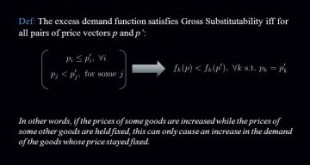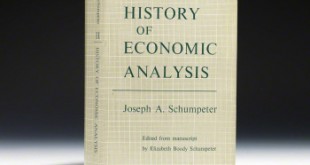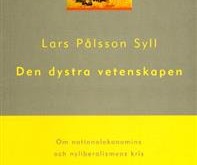The gross substitution axiom Economics is perhaps more than any other social science model-oriented. There are many reasons for this — the history of the discipline, having ideals coming from the natural sciences (especially physics), the search for universality (explaining as much as possible with as little as possible), rigour, precision, etc. Mainstream economists want to explain social phenomena, structures and patterns, based on the assumption that the agents are acting in an...
Read More »The Ricardian Vice
Ricardo’s … interest was in the clear-cut result of direct, practical significance. In order to get this he cut that general system to pieces, bundled up as large parts of it as possible, and put them in cold storage — so that as many things as possible should be frozen and ‘given.’ He then piled one simplifying assumption upon another until, having really settled everything by theses assumptions, he was left with only a few aggregative variables between which, he set up simple one-way...
Read More »What is neoliberalism?
Recently Brad DeLong has been flying his “neoliberal freak flag high” on his blog. And not that long ago Simon Wren-Lewis had a post up commenting on traction gaining “attacks on mainstream economics”: One frequent accusation … often repeated by heterodox economists, is that mainstream economics and neoliberal ideas are inextricably linked. Of course economics is used to support neoliberalism. Yet I find mainstream economics full of ideas and analysis that permits a wide ranging and deep...
Read More »Heckscher-Ohlin-Samuelson
In 1817 David Ricardo presented — in Principles — a theory that was meant to explain why countries trade and, based on the concept of opportunity cost, how the pattern of export and import was be ruled by countries exporting goods in which they had comparative advantage and importing goods in which they had comparatively less disadvantage. Ricardo’s theory of comparative advantage, however, didn’t explain why the comparative advantage was the way it was. In the beginning of the 20th...
Read More »The sad state of economics education
The sad state of economics education Nowadays there is almost no place whatsoever in economics education for courses in the history of economic thought and economic methodology. This deeply worrying. A science that doesn’t self-reflect and ask important methodological and science-theoretical questions about the own activity, is a science in dire straits. How did we end up in this sad state? Philip Mirowski gives the following answer: After a brief flirtation in the 1960s and 1970s, the...
Read More »Free trade and the end of comparative advantage
Free trade and the end of comparative advantage The classical theory of comparative advantage has driven US trade policy for the past fifty years. That policy, in combination with technical innovations that have lowered costs of transportation and communication, has opened the global economy. Yet paradoxically, this opening has rendered classical trade theory obsolete. That in turn has left the US economically vulnerable because its trade policy remains stuck in the past and based on ideas...
Read More »Krugman — self-protectionist free trader
Krugman — self-protectionist free trader Krugman has been a booster of trade and globalization for thirty years: marginally more restrained than other elite economists, but still a booster. Now, the political establishment has what it wanted and the effects have been disastrous for those not in the top 20 percent of the income distribution. At this stage, as exemplified by Krugman, the economics elite is moving to reinvent itself with a combination of minor backpedaling and its own studies...
Read More »The full force of Sonnenschein-Mantel-Debreu
To be absolutely clear, what Sonnenschein (1972), Mantel (1974), and Debreu (1974) showed is that there is no hope of a general result for stability, since the only conditions on the aggregate excess demand function that can be derived from even the strongest form of the assumptions on individual preferences are the well‐known four: continuity, Walras’s law, homogeneity of degree zero, and boundary conditions that guarantee that aggregate excess demand “explodes” if any price goes to...
Read More »Does free trade — really — make us richer?
Does free trade — really — make us richer? [embedded content] Another obstruction comes from the mainstream economics profession that strongly influences public understanding of and discourse about globalization. The economics profession has been a gung-ho supporter of neoliberal globalization, using the rhetoric of free trade. It advocated the policies of the Washington Consensus that were implemented by the IMF and World Bank in the 1980s and 1990s, and it remains one-hundred percent...
Read More »Self-Protectionist Moment: Paul Krugman Protects Himself and the Establishment
Paul Krugman has a new op-ed (“A Protectionist Moment?”) in which he tries to walk away from his own contribution as an elite trade economist to the damage done by globalization, while also continuing to lend his political support to Hillary Clinton and the neoliberal globalization wing of the Democratic Party. His article inadvertently spotlights [...]
Read More » Heterodox
Heterodox









